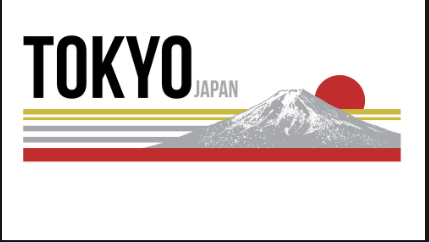LATEST JOBS IN JAPAN 2022
If you’re planning to work multiple jobs in Japan, this article will show you the benefits of working in the country. We’ll discuss the future job market in Japan, the growing number of jobs, the requirements of a full-stack web developer, and why Recruiters make so much money in Japan.
Benefits of working multiple jobs in Japan
A recent report reveals that working multiple jobs could be beneficial to the Japanese economy. The study shows that 22 percent of 500 companies in Japan will offer the option of working a second job, and the number of people taking up such jobs will likely increase. This could mean that more people will stay in the workforce for longer. In addition, working multiple jobs can give employees new skills that they can use for their post-retirement careers.
Employee benefits are also an important factor. In Japan, workers are expected to work hard for their job security and to demonstrate loyalty. They are also entitled to pensions and bonuses, and promotions are usually based on seniority and income. In addition, there are also other perks available, such as discounts on education and flextime. These benefits are available to all employees, but there are certain limitations.

In Japan, employers are investing in their employees’ development. Entry-level positions, such as assisting with administrative tasks, eventually lead to more responsibility and higher pay. Then, as you become more experienced, you can move up and become a leader in your industry. Working in Japan is a great cultural experience.
The most popular job for English speakers in Japan is teaching English. This is a lucrative field that can help you earn a living while improving your language skills. Additionally, it is a great way to learn the Japanese language at the same time. For example, you could teach English at an English language school or a university.
The change will mean a shorter workweek for many workers, and a four-day workweek could improve the Japanese work culture. It could also improve the productivity of workers. A shorter work week could also make it easier to care for children, which is important in some families.
Job growth in Japan in 2022
While Japan continues to grapple with its economic crisis, the outlook for the country’s job market looks positive for the years ahead. Many sectors are expecting to increase hiring. Meanwhile, new roles are emerging as working models change and businesses try to adapt to the new normal. Hays Japan has identified the top ten talent trends that will impact the country’s job market in 2022.
The rising popularity of freelance work and the aging population are boosting Japan’s demand for flexible jobs. As more Japanese try gig economy jobs, the government is considering offering subsidies to entrepreneurs. It also plans to make clearer the contract terms between firms and freelancers. The government has also pledged to increase the number of start-up companies in Japan, and this could be an opportunity for workers who are already in the country.
While Japan’s workforce is largely composed of middle-aged male workers, a significant proportion of women have entered the workforce in recent decades. In 2020, there were 30.4 million women in the labor force, compared to 38.2 million men. Furthermore, more than a quarter of the country’s population is over 45 years old. Older workers tend to be part-time employees, while younger people are more likely to hold full-time positions.
While the country’s economy has remained relatively stable in recent decades, women have faced challenges in securing full-time employment. Approximately half of the Japanese women hold part-time jobs, compared to just 22% of men. Furthermore, women tend to be more likely to be employed after graduating from a community college.
Job requirements for a full-stack web developer in Japan
Japan is a high-demand country for foreign programmers. Many companies want to hire foreign developers so that they can expand their businesses. But being a full-stack developer is more than just coding. You’ll also need to know Japanese. It is a very challenging position.
Japanese companies value the ability to develop applications of various kinds and are looking for versatile people. Full-stack engineers earn higher salaries than those who specialize in a specific area. To get ahead, you’ll need to improve your engineering skills and clear the language barrier.
If you are looking for a job in the IT industry, a recruitment agency can help you find a job. These agencies work with employers in Japan to find the right candidates for their open positions. These agencies specialize in many fields, and many of them will send you job leads. Some recruitment agencies focus on the IT sector, including Michael Page, Robert Walters, Hays, and others. Speaking at technical conferences and events is another great way to demonstrate your developer skills and attract employers to your presentation.

IT jobs are all about technical skills. While you don’t need advanced Japanese skills to be a successful full-stack developer, you will need to know how to work with computers and common software. In addition, you’ll need to obtain a work visa to work in Japan.
Applicants with Japanese language skills are a distinct advantage. Having fluent Japanese skills will open up a range of job opportunities. However, if you can’t speak Japanese fluently, you’ll need to show that you’ve taken the time to learn the language. Enrolling in a Japanese language class is one way to show that you want to improve your skills. Japan Switch offers affordable lesson plans for beginners and intermediate levels that will teach you basic conversational skills.
Recruiters in Japan make a lot of money
The recruitment market in Japan is very unique. There is an increasing focus on human capital in the corporate world. CEOs increasingly place great importance on identifying the best talent for their companies. The wrong hire can cost a company millions of dollars and miss an opportunity. As a result, the job of a recruiter has become increasingly important.
Recruiters work for companies of all sizes and types. There are large Japanese and international corporations that have many employees and are constantly searching for new talent. They will invest heavily in their internal recruiting strategy and may have an onsite recruiting manager and a team of Talent acquisition specialists. While these companies will typically handle the recruiting process in-house, they may also use an external recruitment agency for senior positions.

Recruiters work with various departments and agencies to identify what an organization needs and how best to fill it. These professionals are also responsible for coordinating communication with both companies and job candidates. Recruiters need to possess excellent interpersonal skills. This is important because they will be dealing with people and companies daily.
Japanese resumes need to include a photo so that potential employers can visualize the applicant. They must also be designed to highlight the candidate’s strengths and skills. To get the best job opportunities, you must target a specific company and customize your resume accordingly. It is also recommended to include a photo, either a passport photo or a professional-looking image. Interviews may take place online or over the phone, but the rules are the same for both.
Despite the rigidity of Japanese employment culture, the recruitment market is growing. Japanese companies are constantly competing to attract the best talent. This competition is increasingly extending to mid-career hires.
Networking events
“The team,” the circulatory system of any business, plays a vital role in managing risks. In recent years, several networking events for multiple jobs have been organized by JETRO in Japan. The goal of these events is to provide international students with opportunities to expand their professional options and build their networks. The events are conducted virtually and in English, and attendees must RSVP in advance.
The Careers Expo is free to attend and open to everyone but is particularly targeted at recent graduates, young professionals, and university students. It aims to provide individuals with the opportunity to advance their careers by building their network and gaining knowledge about the job market in Japan. In particular, attendees can network with other professionals and find a job with a Japanese company.
Many major companies are actively recruiting and seeking skilled new employees to fill open positions. It is important to build a solid network to be competitive in the job market. The more connections you have, the more opportunities you’ll get. It can take time and effort to build a strong network, but having the right contacts can save you hours of scrambling.
Corporate events are also an excellent place to meet people in your field. In addition to developing professional relationships, these events can help you gain access to new customers and industry insights. They are also an excellent way to meet potential employers. By attending corporate events, you can make valuable connections and build a network of professional contacts for multiple jobs.
If you’re interested in advancing your career in the field of sustainable finance, there are plenty of events that can help you do that. The Japan Chamber of Commerce Rendezvous is a fantastic example. This annual event features free wine and fine food. During the symposium, Japanese finance professionals can discuss the latest trends and regulations in responsible investing. Past participants have included Dai-ichi Life Insurance, GPIF, Sophia School Corporation, and the Transport Agency Pension Fund.
Submit CV Online
- TO FIND MORE JOBS CLICK THE LINK BELOW
-
MORE JOBS





